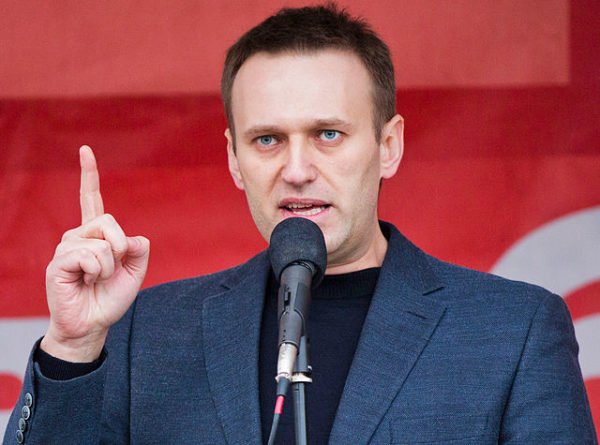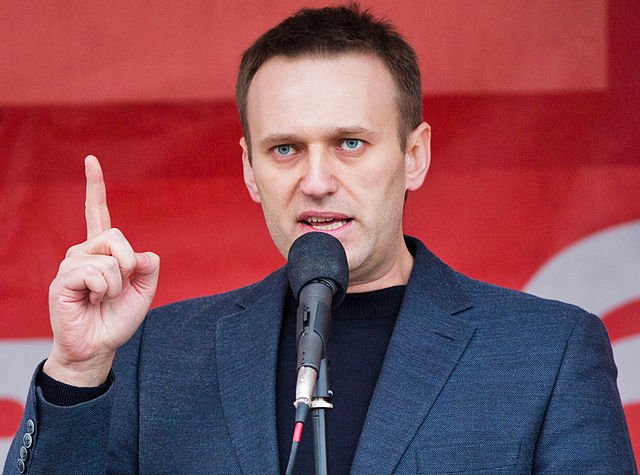
Alexei Navalny has lost an appeal against his jailing for violating the terms of a suspended sentence.
The Russian opposition leader was detained last month after returning to Russia from Germany, where he was being treated for a near-fatal nerve agent attack.
Alexei Navalny has blamed President Vladimir Putin for the attack and says the charges against him are fabricated.
However, the Kremlin denies any involvement in his poisoning.
Alexei Navalny was accused of breaking the terms of a 2014 suspended sentence for embezzlement that required him to report regularly to Russian police.
In court, in a speech that referenced both the Bible and the Harry Potter series, the activist argued the charges were “absurd” as he was unable to report to the police while recovering from the nerve agent attack.
He said: “The whole world knew where I was.
“Once I’d recovered, I bought a plane ticket and came home.”
However, the judge rejected Navalny’s case and he will return to the penal colony where he is serving his time. The judge did, though, cut his six weeks off the nearly three-year sentence imposed.
Alexei Navalny Sentenced to 3.5 Years in Jail Despite Protests
Alexei Navalny Detained After Flying Back to Russia
Alexei Navalny: Traces of Nerve Agent Found on A Bottle in His Hotel Room, Says His Team
Russia: Alexei Navalny In Coma After Allegedly Being Poisoned
Alexei Navalny faces another appearance in court on February 20, on charges of slandering a World War Two veteran who praised Vladimir Putin.
The European Court of Human Rights, of which Russia is a member, says Alexei Navalny should be released out of concern for his life. But Russia said the call was “unlawful”.
Alexei Navalny’s supporters see the charges as an attempt to silence him and thwart his political ambitions.
The activist has been a persistent thorn in the side of President Putin, making allegations of corruption including a claim the president owns a lavish palace by the Black Sea.
Navalny’s allies are seeking to challenge pro-Kremlin parties in parliamentary elections this year, and President Putin warned on February 18 against foreign interference.
European foreign ministers are set to meet on February 22 to discuss imposing further sanctions on Russia over the case.
There are divisions among EU members, with Germany going ahead with the Nord Stream 2 project which would transfer gas directly from Russia to Germany.
The Nord Stream 2 project is opposed by Poland and the Baltic states. On February 19, Lithuania said it should be paused until after September’s parliamentary elections in Russia.
